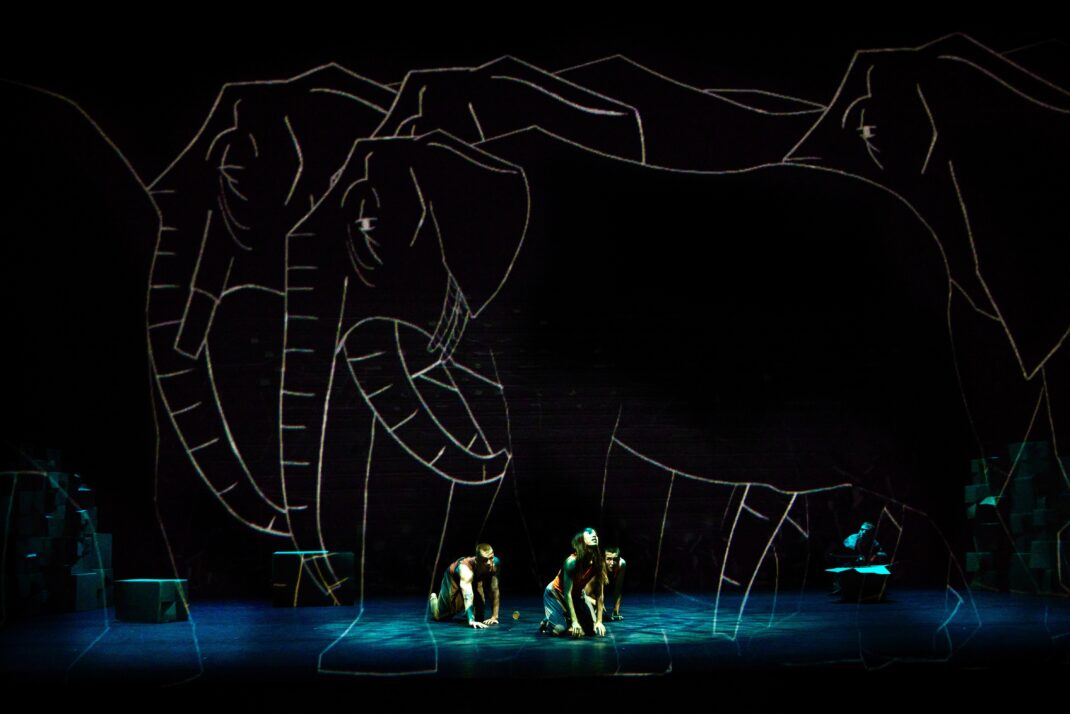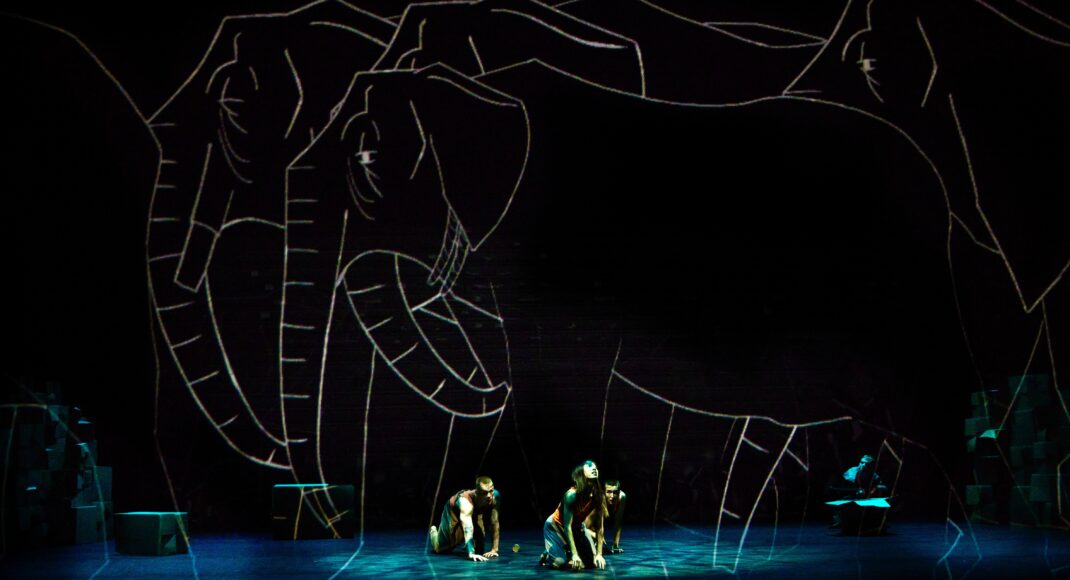23 February 2024. St James Theatre, Wellington
reviewed by Jennifer Shennan
A fascinating in-depth interview late last year on Radio New Zealand between Akram Khan and Kim Hill—(which of her interviews has not been deep and fascinating?)—is well worth accessing in RNZ archive. It’s no surprise to learn there that the bright mind and ferocious drive from Khan’s youngest days has followed through to his celebrated career as choreographer today.
We have seen other work by Khan here some Festivals back, in a program shared with French dancer Sylvie Guillem, and more recently and most memorably, in English National Ballet’s production of his Giselle in an Auckland season. That classic too was ‘re-imagined’ in a timeless setting, and a huge set was used to great effect for the dramatic dancing that nonetheless remained central to the work.
Rudyard Kipling’s The Jungle Book is a favourite among memories of childhood reading. There’s always a frisson to have old names and images recalled—Mowgli the child, Shere Khan the lurking tiger, Baloo the Bear, the Wolves of course. Its underlying theme of man in practical and ethical relation to other animal species and to nature is carried through, but is here darkly thrust into a contemporary setting of looming environmental disasters.
The show opens with giant animated images of desperate refugees on boats struggling to reach the shores of new lands, but there’s disaster on all sides and many do not make it. Sound familiar? Mowgli the girl child is a casualty, separated from her family, and she ends up in a wild place, a jungle where the wolves will discuss who’s to care for her. Sound familiar? How prescient was Kipling, how sharp is Khan.
Throughout the show many other large-scale images are projected onto several gauze curtains layered across the stage … herds of giraffes stampeding, huge elephants pondering with dread on the state of the natural environment. An atmospheric sound track is loud and throbbing, but to my disappointment prevents us from hearing the numerous excerpts of dialogue that are no doubt bringing further dimension to the work. As there is no printed program available that opportunity to quote from these excerpts is also lost.
Baloo the Bear is an entertaining comic, the girl-cub is central, and a number of mesmerising group dances bring further urgency to the performance. Readers wanting further detail about the cast and choreography may find it online.
I know there are arguments these days against printed programs—’Audiences don’t want to be told what to think’ … ‘Too much historical information we don’t need’ … ‘Save trees and protect the environment’ etc. I personally think that’s a pity—printed programs don’t need to be lavish and glossy (though I agree they sometimes are). They can be simple and modest but still packed with a wealth of information and profiles of performers. Without them we will soon move to a scenario without archives, memoirs, biographies, histories of the performing arts—nothing to store in the attic for decades—nothing to trigger and relish memory, to show and share with friends, and with grandchildren to encourage them to go to the theatre, and to read Kipling… and probably many fewer reviews to share thoughts and opinions, to help document an enduring but ephemeral art.
Jennifer Shennan, 29 February 2024
Featured image: The elephants from Jungle Book Reimagined. Photo: Supplied

